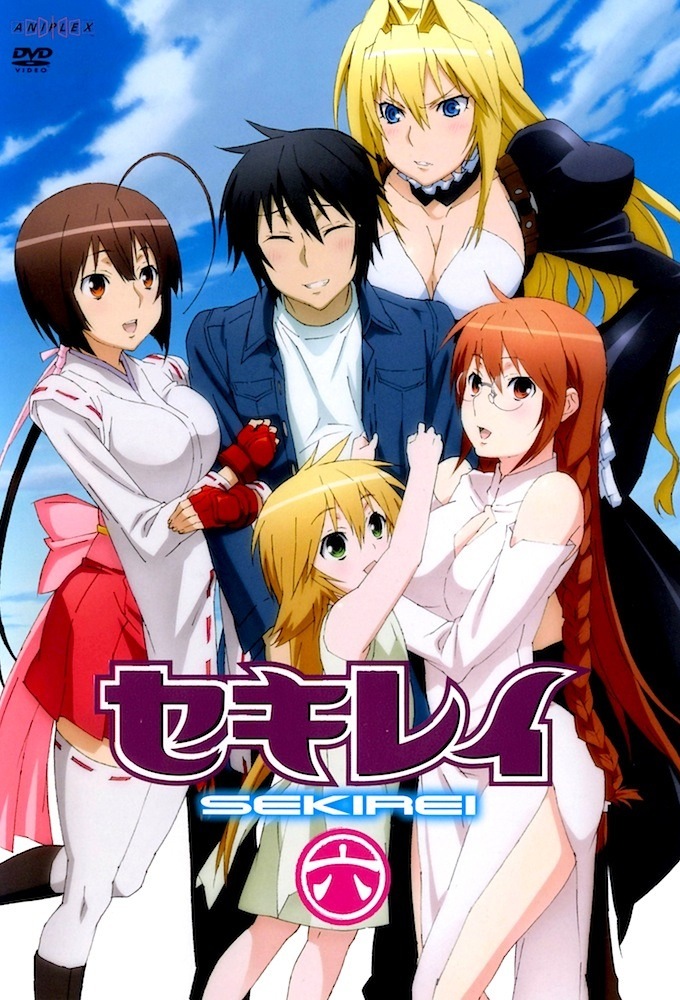
恥ずかしがり屋でぎこちないが、道徳的で思いやりのある19歳の湊は、大学に再び入学できなかった後、超人的な能力で彼を驚かせる同年代の女の子、むすびに出くわす。 彼は彼女から、彼は彼女のような女の子、セキレイを性的接触を通して強化することを意図した運命の若い男であるアシカビであると言われました。
| Season | From | To | Episodes |
|---|---|---|---|
| All Seasons | |||
| Specials | July 2008 | August 2010 | 8 |
| Season 1 | July 2008 | September 2008 | 12 |
| Season 2 | July 2010 | September 2010 | 13 |
| Unassigned Episodes | 0 |
| Season | From | To | Episodes |
|---|---|---|---|
| All Seasons | |||
| Specials | 0 | ||
| Season 1 | July 2008 | March 2009 | 13 |
| Season 2 | July 2010 | September 2010 | 14 |
| Unassigned Episodes | 6 |
| Season | From | To | Episodes |
|---|---|---|---|
| Season 1 | July 2008 | September 2010 | 27 |
| Unassigned Episodes | 6 |
| Name | Number of Episodes | Dates | |
|---|---|---|---|
| Takao Yoshioka | 11 | 07/02/2008 - 09/17/2008 | |
| Natsuko Takahashi | 1 | 08/27/2008 |
| Name | Number of Episodes | Dates | |
|---|---|---|---|
| Keizou Kusakawa | 5 | 07/02/2008 - 03/25/2009 | |
| Atsushi Nakayama | 3 | 07/16/2008 - 09/10/2008 | |
| Taizou Yoshida | 2 | 07/09/2008 - 08/20/2008 | |
| Masahiro Sonoda | 1 | 07/23/2008 | |
| Kouta Okuno | 1 | 09/03/2008 | |
| Yoshinari Saitou | 1 | 08/06/2008 |
No lists.

Ecchi (エッチ, etchi, pronounced [et.tɕi]) is a slang term in the Japanese language for playfully sexual actions. As an adjective, it is used with the meaning of "sexy", "dirty" or "naughty"; as a verb, ecchi suru (エッチする or Hする) means "to have sex", and as a noun, it is used to describe someone of lascivious behavior. It is softer than the Japanese word ero (エロ from Eros or "erotic"), and does not imply perversion in the way hentai does. The word ecchi has been adopted by western fans of Japanese media to describe works with sexual overtones. In western culture, it has come to be used to refer to softcore or playful sexuality, as distinct from the word hentai, which connotes perversion or fetishism. Works described as ecchi by the western fans do not show sexual intercourse or genitalia, but sexual themes are referenced. Ecchi themes are a type of fan service, and can be found in most comedy shōnen and seinen manga and harem anime.



Harem (ハーレムもの, hāremumono, "harem works") is a genre of light novels, manga, anime, hentai, and video games originating in Japan in the 1970s but exploding late 1980s and 1990s with dating simulator games and focused on polygynous or polyandrous relationships, where a protagonist is surrounded by three or more androphilic/gynephilic suitors, love interests and/or sexual partners. Harem works are frequently comedies that rely on self-insertion protagonists allowing the audience to project themselves unto, and on having relatable and interesting ensemble cast of characters. A story featuring a heterosexual male or homosexual female protagonist paired with an all-female/yuri harem series is informally referred to as a female harem or seraglios, while a heterosexual female or gay male protagonist paired with an all-male/yaoi harem series is informally referred to as a male harem, reverse harem, or gyaku hāremu (逆ハーレム).

Anime series that have a manga version. The manga medium could be derivated from the serie, base of it or just another adaptation from a common source like a novel, a light novel, a web novel, etc...

No lists.
Please log in to view notes.